Language is both part of identity and also an easy means for others to treat an immigrant as an outsider: “You don’t belong here”. Film director Melanie Pereira talks about the impact on her and her friends of speaking Luzembourgish with an accent, and how in London one of them felt more comfortable despite Luxembourg being more multicultural.
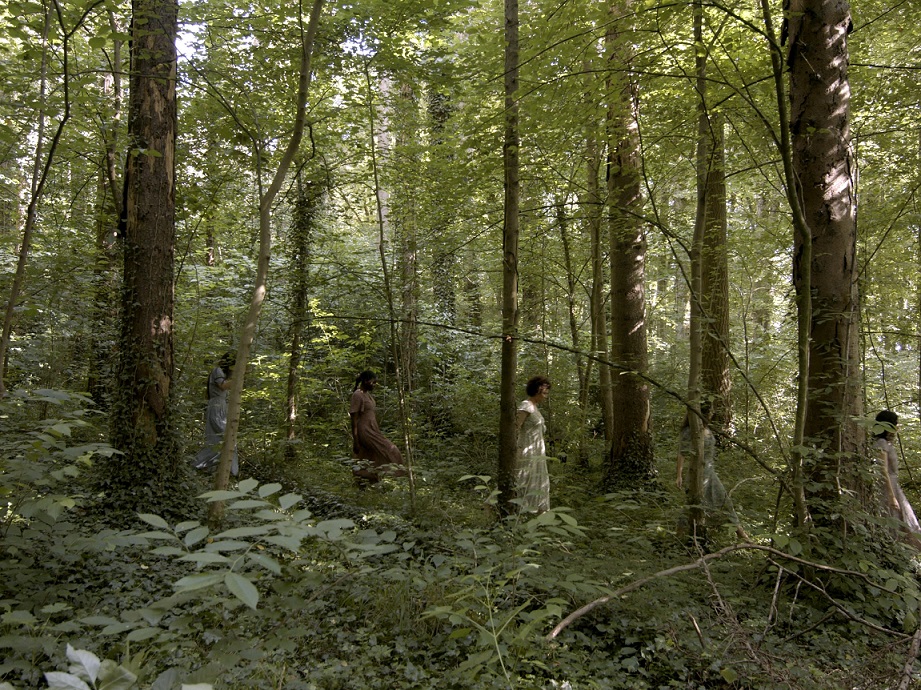 Graham Douglas
Graham Douglas
People whose parents immigrated from a variety of countries, both European and African, talk with each other through the medium of this film, facilitated by a filmmaker with a similar experience. The current generation are centre stage, but they acknowledge the debt they have to their parents who often suffered discrimination in silence. Making the film was an intense process of personal development, a kind of cultural therapy, which reveals the power of cinema. She speaks about the power that nostalgic images have for immigrants, how the country of origin is an imaginary anchor which will hold the past life protected until we can return.
But when we do return, if it’s to a village we may find that it has been industrialized or abandoned, where is our heart to find rest? For the children they have the new future to enjoy and pass on to their children in turn, but there is an abyss separating them from their parents’ sacrifices. This is the ‘vida humana’.
To my English ear, some of the Melusinas spoke English as if they had gone to a private school. Did they come from privileged backgrounds?
They all came from rural areas. Amela’s parents left Montenegro before the war and her grandparents were already there, her mother came with them aged 17. Her father had been in Germany as a Gastarbeiter (a temporary guest worker).
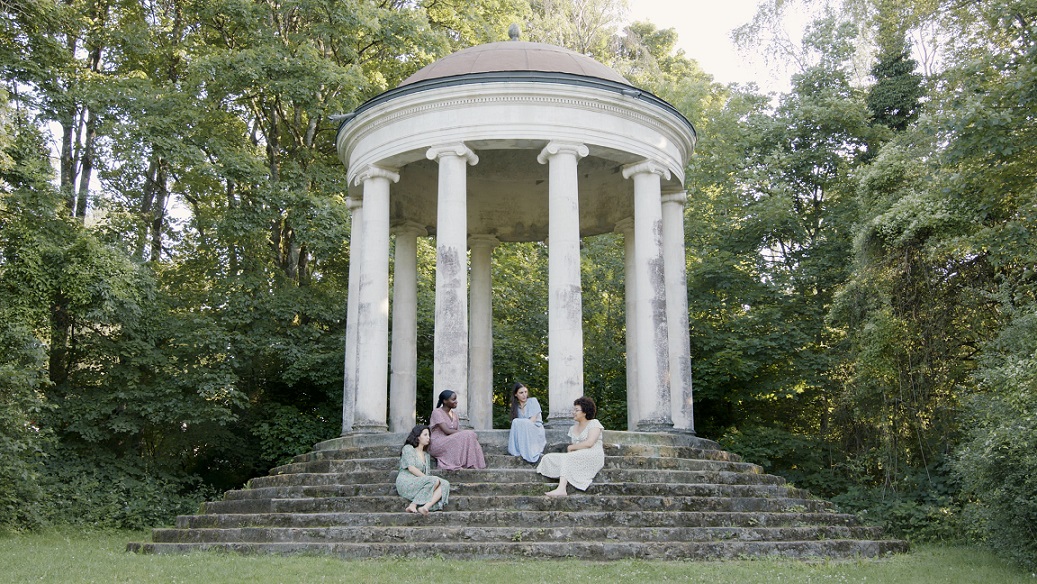 Melina’s father was a professional boxer who left Congo during the civil war and went to Spain where he met her mother, but the economy there was unstable and he could not continue boxing, so they emigrated to Luxembourg where there was a Congolese community. Shanila’s parents came from Uganda, her father was also a boxer, and they met in Luxembourg. He runs a transport company between Luxembourg and Uganda where they make donations to social projects. Ana Filipa’s father migrated from northern Portugal and stayed with relatives in Luxembourg while preparing the arrival of his wife and child. They remember the extreme poverty of their life in Portugal and now have a house and a good life in Luxembourg; they don’t intend to return.
Melina’s father was a professional boxer who left Congo during the civil war and went to Spain where he met her mother, but the economy there was unstable and he could not continue boxing, so they emigrated to Luxembourg where there was a Congolese community. Shanila’s parents came from Uganda, her father was also a boxer, and they met in Luxembourg. He runs a transport company between Luxembourg and Uganda where they make donations to social projects. Ana Filipa’s father migrated from northern Portugal and stayed with relatives in Luxembourg while preparing the arrival of his wife and child. They remember the extreme poverty of their life in Portugal and now have a house and a good life in Luxembourg; they don’t intend to return.
In Luxembourg people speak three official languages, we learn German and French in school at a formal level. I can speak the language in Germany, but I don’t know it at street-level. The only time we were given any instruction in Luxembourgish was in the 5th or 6th year with a little book distributed by a supermarket chain!
There are three levels in schools. Up to 9th year you go to the Modulaire which is where many migrants and kids from poor Luxembourgish backgrounds end up. Then you have the Technik until age 19 as they have 13 years in school, and this is mostly vocational education, and finally the last year in the Klassik school where you are expected to go to university and teaching is very intense.
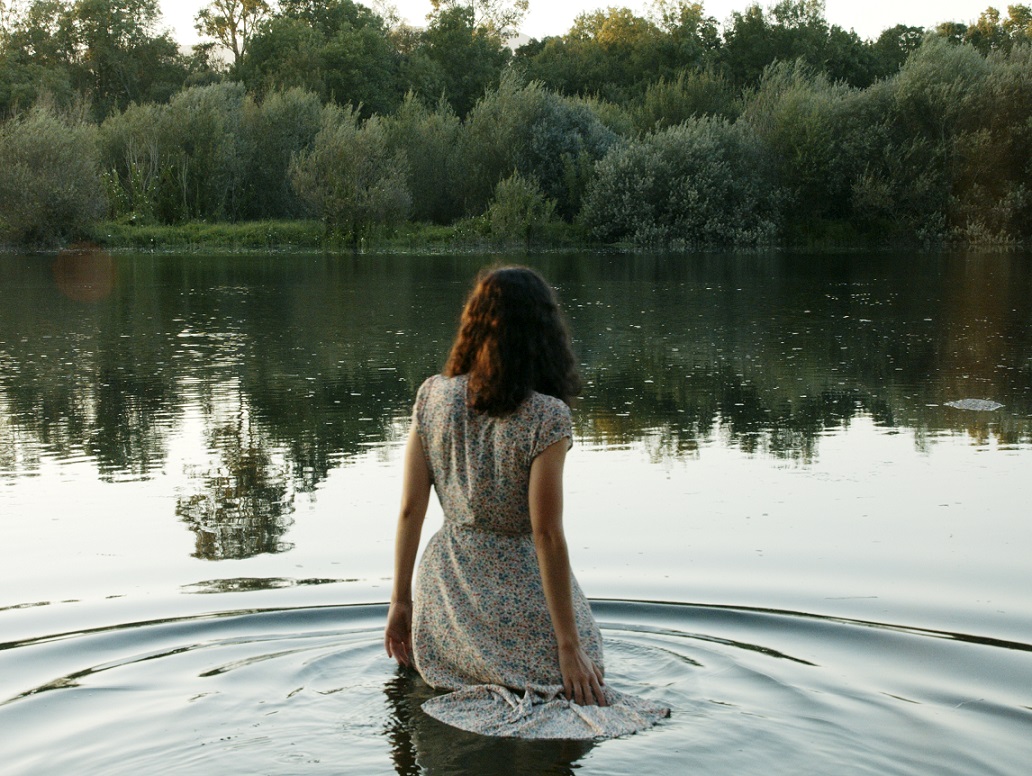 I misinterpreted a Luxembourgish accent as being posh English!
I misinterpreted a Luxembourgish accent as being posh English!
Languages and accent were important for us. Other students made fun of my way of speaking German. Even in languages there is a hierarchy and we used to listen to BBC programmes to practice a British accent which was considered superior to a US one.
You went to an ‘Immigrant school’. Did it feel like a ghetto school?
Not at all, but the school that Ana Filipa went to was like that, it was the ‘trash school’. I was very happy until the Klassik school which was very snobbish and speaking Portuguese in the corridors would get you ostracized. A girl once told me she was very proud of me because I had succeeded despite my background, it still shocks me when I think about it. She said I should ask my ‘doctor’s dad or mum’ when I needed a reference for university. Because my mum is a housecleaner, and my dad works in construction. When I go back, I avoid the street where that school is because I have such bad memories!
Amela came from the Bosniac community in Montenegro where she was already in a minority. Can you say more about her experience?
She told me that in London she could say she was from Luxembourg or Montenegro and feel comfortable. She made sense of her identity there, and she now feels comfortable in Luxembourg.
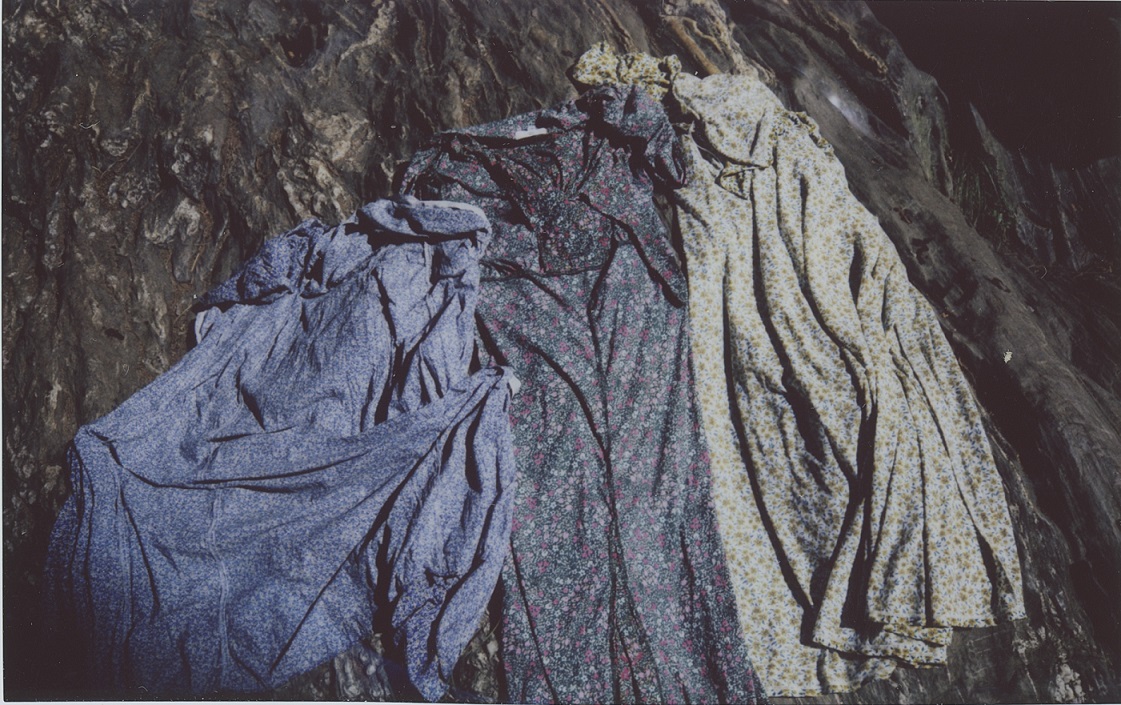 In Portugal I never felt that. Her master’s thesis was on language teaching for children using languages they know. I studied German for 13 years in school, but it was only in my last year that I finally understood the grammar, so it would really help immigrant kids to have things explained in their own language. Amela studied in London and did her master’s at Kings Cross University. And now she’s an English teacher.
In Portugal I never felt that. Her master’s thesis was on language teaching for children using languages they know. I studied German for 13 years in school, but it was only in my last year that I finally understood the grammar, so it would really help immigrant kids to have things explained in their own language. Amela studied in London and did her master’s at Kings Cross University. And now she’s an English teacher.
The languages we grew up with are part of our identities?
When I talked to Melusina in the film, I started in Luxembourgish, because the story originated there, but it didn’t feel natural, so I switched to Portuguese. The story has a deep resonance for me, it’s my point of contact as a person with Luxembourg. You see how people switch spontaneously between languages in the film.
Ana Filipa felt that Portugal had abandoned her parents.
I’d been living in Portugal for six years and when she said that it hit me really hard. The film took a different turn because I suddenly realised that it needed to be about feeling betrayed by our images of both countries. The editing became more difficult because I wasn’t just Melanie the filmmaker, the film was tied up with my changing identity. I’m not so angry now with Luxembourg because it’s a huge part of me and it has given me a lot.
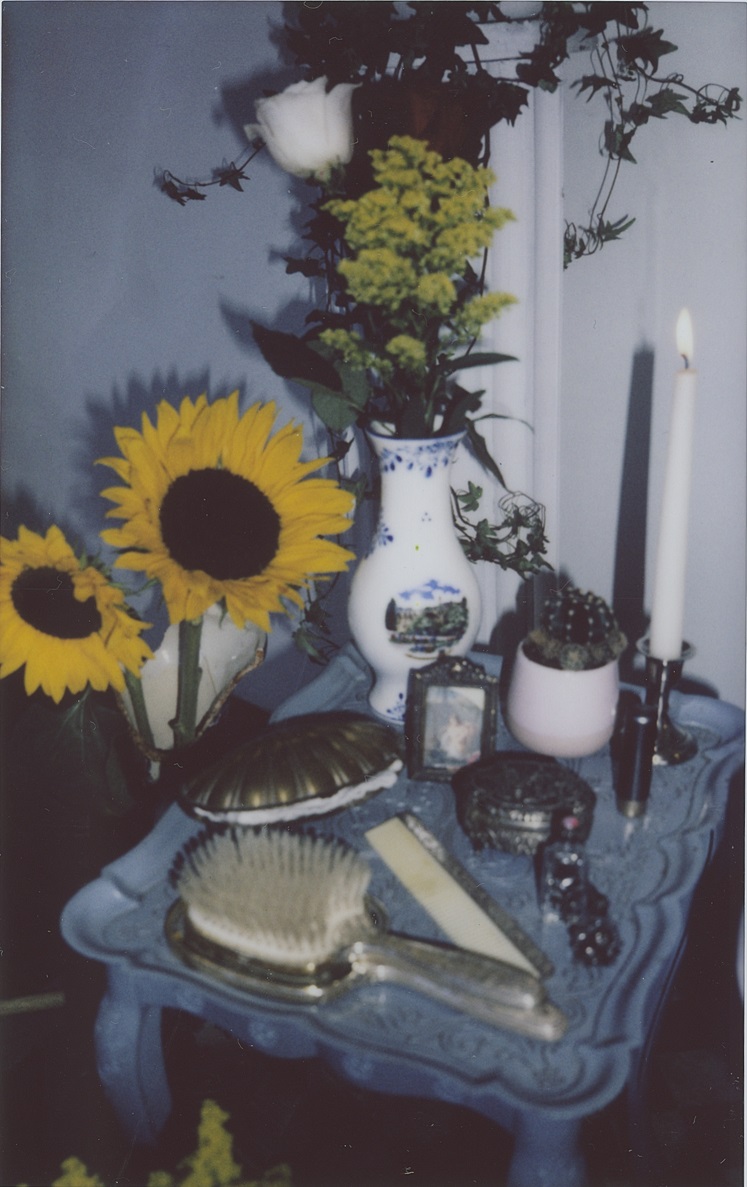 We grew up believing that Portugal was a wonderful place that we would return to, and our holidays were always happy in the sunshine. In school, children were not taught about the dictatorship, we just thought it was better than Fascism in Germany or Italy, but it was very violent and behind this beautiful façade we are a deeply racist and sexist country. It shattered the illusion that my parents had. I profoundly hate Lisbon! Just look out of the window you see a lamppost with a caravel (a ship used by the explorers) on top and there are so many monuments to the colonial period.
We grew up believing that Portugal was a wonderful place that we would return to, and our holidays were always happy in the sunshine. In school, children were not taught about the dictatorship, we just thought it was better than Fascism in Germany or Italy, but it was very violent and behind this beautiful façade we are a deeply racist and sexist country. It shattered the illusion that my parents had. I profoundly hate Lisbon! Just look out of the window you see a lamppost with a caravel (a ship used by the explorers) on top and there are so many monuments to the colonial period.
In Belém there are coats of arms in the pavement where countries like Angola are just placed in alphabetical order with Portuguese cities.
And it was installed very recently. I feel at home in Portugal but things like that make me very uncomfortable.
Lisbon is not as multicultural as London, but I can meet people from Angola, Brazil, Guiné-Bissau, Cabo Verde who all speak Portuguese and bring their music here.
In Porto there was a resistance to Brazilians coming here, but for me it was completely understandable and natural. Contact with other peoples opens you up to different ways of thinking from what you see on TV. At school I was told that Portugal was a third world country, but I discovered that Portugal is more advanced than Luxembourg in lots of ways.
Will you make different kinds of film now?
Albert Camus’s work has different cycles, the absurd, then the revolt and then love, and my cycle of immigration is coming to a close now. But I want to accompany my father in his last week of work before they return to Portugal. My second feature is about a region in northern Portugal called Castro Laboreiro, a group of 40 villages, where in winter people pack up and move to another village until spring. It’s a dying tradition, and few films have been made about it.
(Photos supplied by the interviewee, and with permission from Red Desert Films for publication.)












.jpg)












